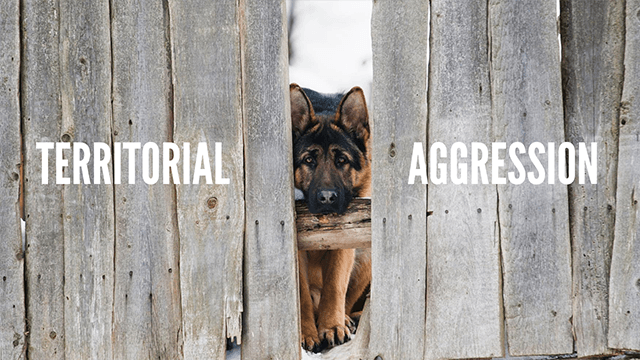Blog
Dog to Dog Aggression - Territorial Reactivity
Food And Treats
February 24, 2021

Do you have a dog that barks and lunges in his home and around his neighbourhood but is calmer outside of these areas? Your dog may be exhibiting signs of territorial reactivity. To be clear on what territorial behaviour looks like, here are some key signs to look out for.
What it looks like
- Most severe reactivity happens at home. These dogs bark and lunge with the most energy in their own home and/or neighbourhood.
- Less reactivity outside of the home. This dog also tends to show less reactivity when he's outside of his neighbourhood or territory.
- The dog does not pursue when the "intruder" leaves. Typically, this type of dog's primary focus is to conserve energy. Once the intruder leaves, the perceived threat is gone, and so there is no need to continue the pursuit.
- Loyalty to the pack. This type of dog typically is very loyal to his or her owners but can be more aloof with people outside the immediate family.
Causes
- Genetic. Some dogs, like the guardian type breeds, were bred specifically to inherit these traits. The job of this breed is to protect the herd, flock, or property from predators. This is an inborn characteristic in the dog that cannot completely ever be trained away.
- Learned behaviour. Sometimes territorial behaviour can be learned from day-to-day events. For example, when the mailman drops off mail, the dog perceives an intruder and starts barking. When the mailman turns to leave, in the dog's eyes, it's his barking that chased the mailman away. Over many repetitions with the same results, the dog learns that barking stronger and louder will get him the result he wants every time.
How to treat
- Obedience training. Training would be crucial to improve impulse control and help the dog to understand when it is appropriate to tap into his genetic instincts and when it is not.
- Strong, firm, but fair leadership. For most of these types of dogs, strong, firm, but fair leadership is needed so the dog learns to this is your turf, not his, and so it isn’t his decision when to guard and when not to
- Management of genetic behaviour. Because there is an element to territorial behaviour that is genetic, day to day management and having realistic expectations from owning this type of dog is needed in order to create and maintain a peaceful household.
Got a dog that you think might be exhibiting some territorial dominance behaviours? Email us at [email protected] for more information on how we can help you!
Categories
All Categories
Dog Aggression
Food And Treats
Stay connected with news and updates!
Join our mailing list to receive the latest training tips and updates from me!
Don't worry, your information will not be shared.
We hate SPAM. We will never sell your information, for any reason.




